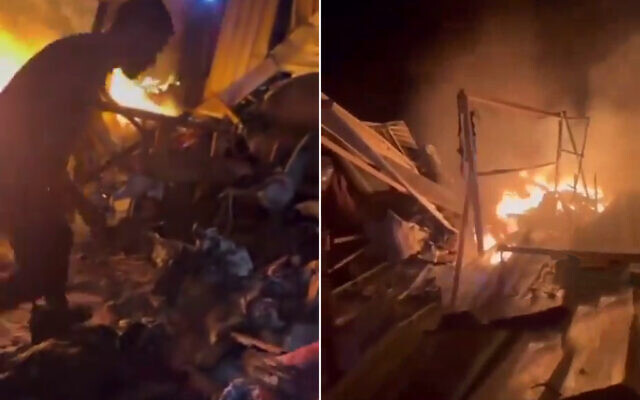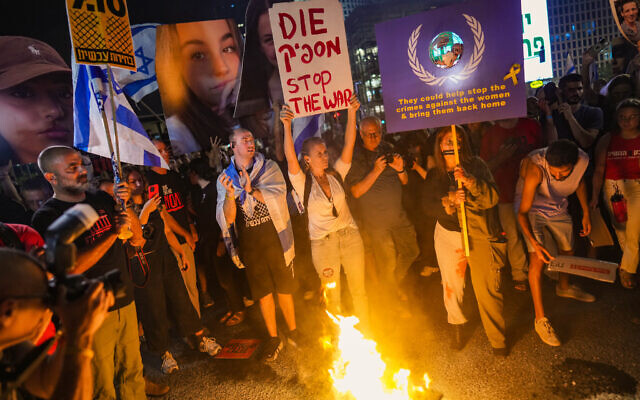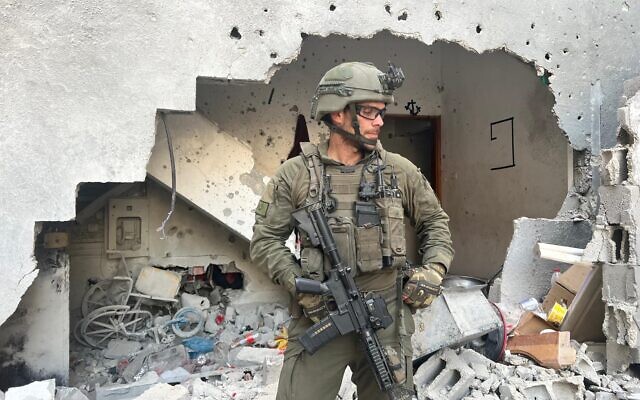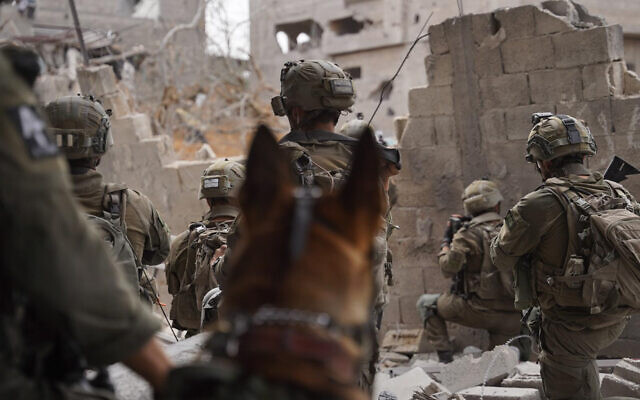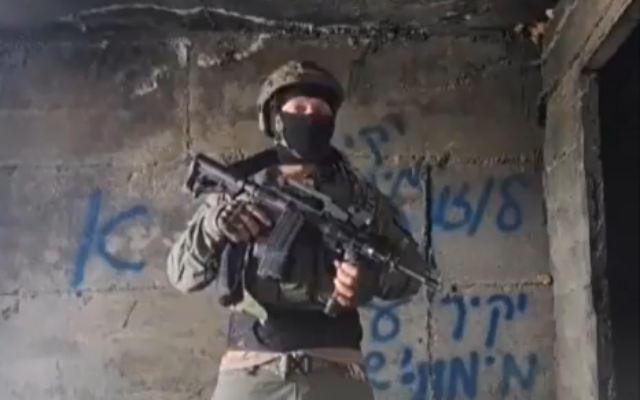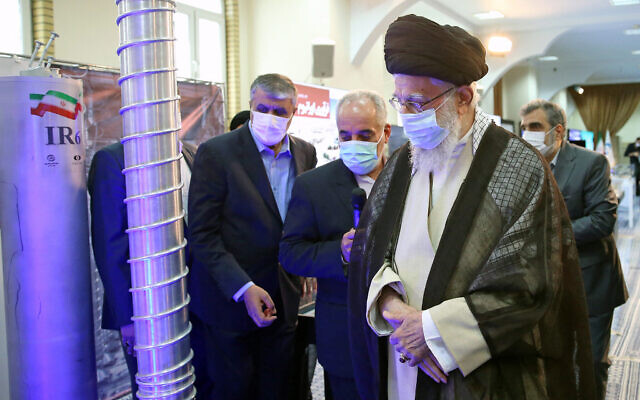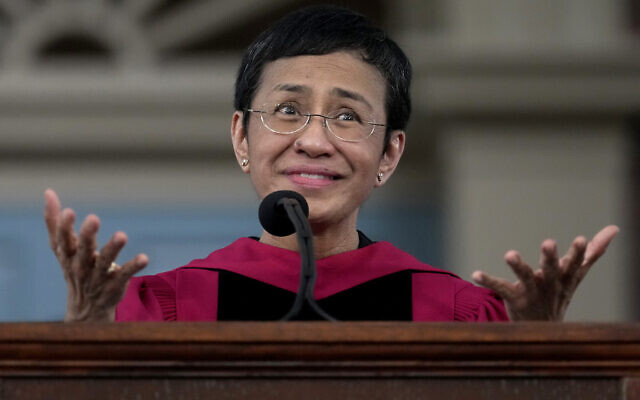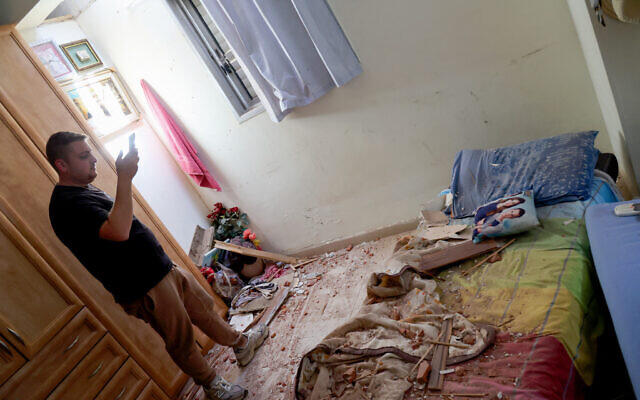How ordinary citizens became superhuman on October 7: A new book recounts their tales
Author Nachum Avniel’s ‘We’re On Our Way: The Civilians Who Saved Lives On October 7’ focuses on everyday heroes to highlight the oft-overlooked greatness Israelis hold within
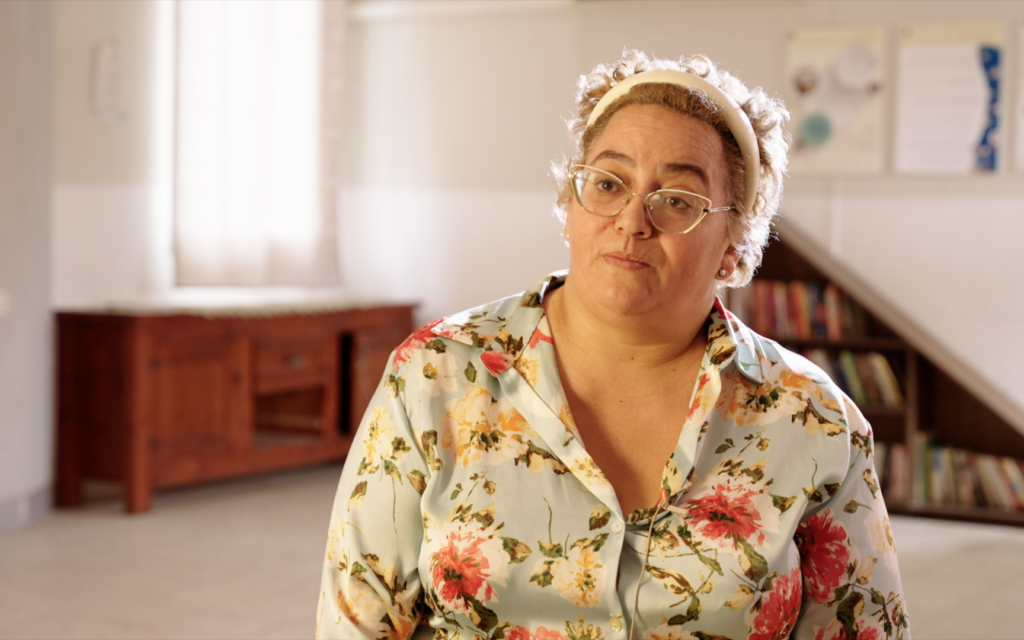 Tali Hadad, from the southern city of Ofakim. (Ahva and Matan Golomb)
Tali Hadad, from the southern city of Ofakim. (Ahva and Matan Golomb)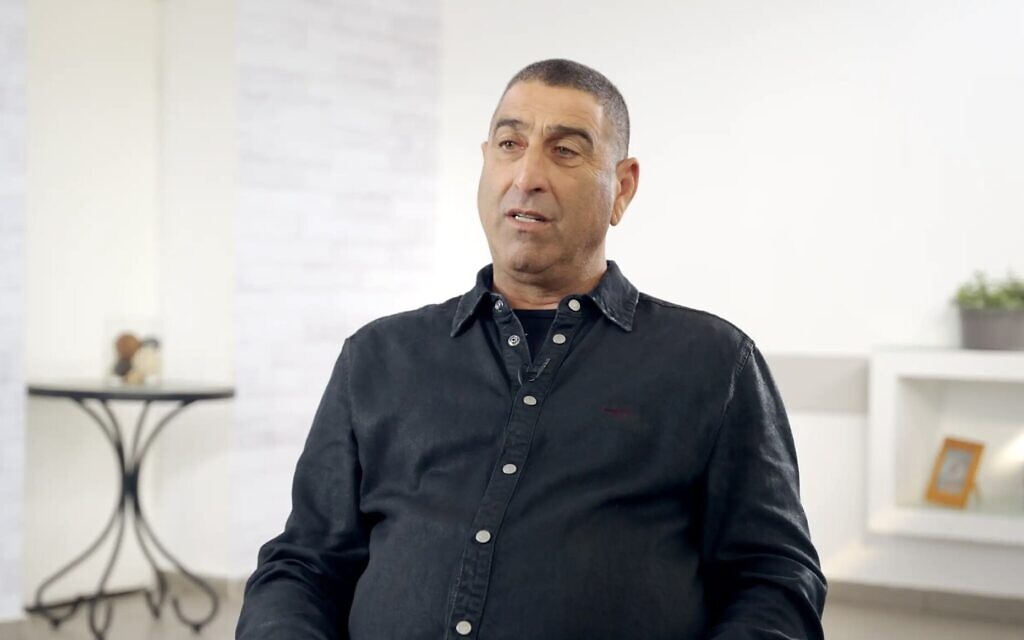 Rami Davidian from Moshav Patish in southern Israel. (Ahva and Matan Golomb)
Rami Davidian from Moshav Patish in southern Israel. (Ahva and Matan Golomb)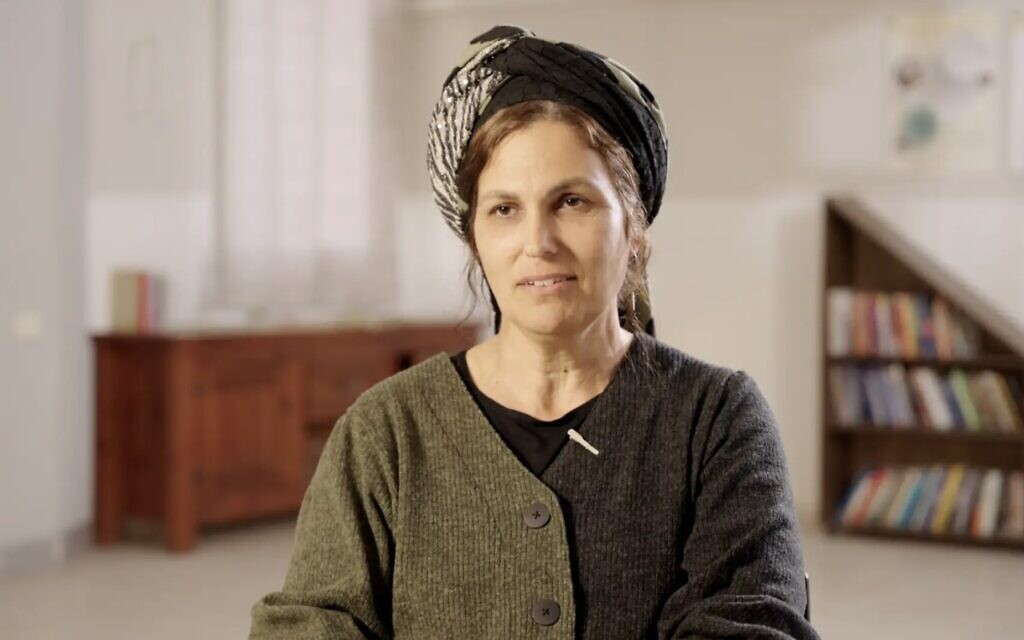 Sarit Ohayon. (Ahva and Matan Golomb)
Sarit Ohayon. (Ahva and Matan Golomb)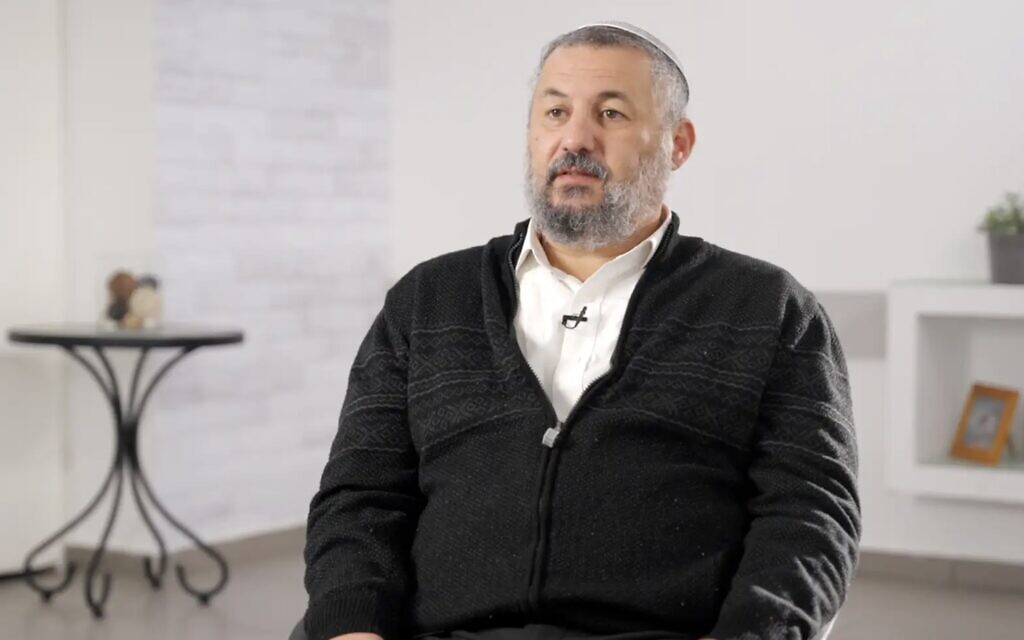 Rabbi Haim Sasi, a resident of the southern city of Sderot and a volunteer for the Ichud Hatzala emergency services, who continued to try to treat wounded people on October 7 after sustaining gunshot wounds himself .(Ahva and Matan Golomb)
Rabbi Haim Sasi, a resident of the southern city of Sderot and a volunteer for the Ichud Hatzala emergency services, who continued to try to treat wounded people on October 7 after sustaining gunshot wounds himself .(Ahva and Matan Golomb)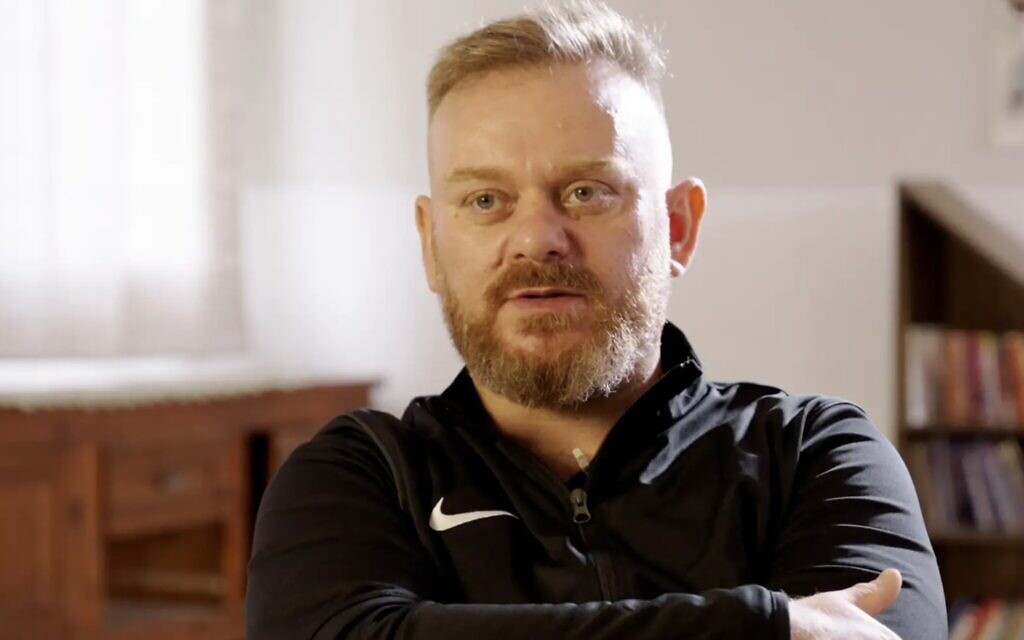 Yigal Zinger. (Ahva and Matan Golomb)
Yigal Zinger. (Ahva and Matan Golomb)
Rami Davidian, 59, a soft-spoken father of four and a fuel distributor by trade, might seem like an unlikely hero.
But on October 7, the resident of Moshav Patish near the Gaza border metamorphosed into a guardian angel who used his knowledge of the local terrain to rescue some 700 young people hiding from Hamas terrorists, who had attacked an overnight music festival near Kibbutz Re’im.
He drove repeatedly into life-threatening situations, dodging Hamas bullets to locate and bring back to his home shocked revelers who were hiding in ditches, and behind and up trees, terrified that the gunmen would find them.
In all, the thousands of Hamas-led terrorists who stormed into southern Israel butchered some 1,200 people in communities near the Gaza border, most of them civilians, and kidnapped 252 more to the Gaza Strip.
A relative of Oz Davidian, who also saved dozens of party-goers on that fateful day, Rami Davidian organized his sons-in-law into an ad hoc first responder unit to receive the terrified carloads of people, inform their parents that they were safe, and drive them out of the area.
When there was nobody left to save, he used the cover of smoke from gunfire to access the site of the party. There, or in the environs, the Hamas gunmen had shot dead 360 mostly young people, often in barbaric circumstances involving mutilation and rape.
Quietly, he gathered and tried to match body parts, covered corpses that lay in indecent positions, moved bodies away from the passage of Israeli tanks, and recited the traditional Shema prayer over each one.
In recognition of his bravery, Davidian was chosen to light a torch at the national Independence Day ceremony on Mount Herzl on Monday evening.
Davidian’s harrowing and intensely moving testimony joins those of other ordinary citizens who displayed superhuman capabilities on October 7, in a book written by Nachum Avniel (in Hebrew; it is being translated into English) due to hit Israeli shelves next week. (It can already be ordered online).
“We’re On Our Way: The Civilians Who Saved Lives On October 7” contains detailed accounts of the actions taken by individuals, one family, and one security team — in the community of Shlomit close to the Israeli border with the Egyptian Sinai. One chapter each is devoted to the heroes of the southern cities of Ofakim and Sderot.
The heroes include a police officer with a desk job who volunteered to help guard the Nova party for extra pay (Yigal Zinger), a party- and car-loving restaurateur (Ben Shimoni), a veteran radio reporter (Rami Shani), a retired general who has become a TV commentator on the war in Gaza (Israel Ziv), a high-ranking figure in the internal security services (Yossi Taher), and the Slotki brothers, Noam and Yishay.
The book reads like a thriller as each character — or those who describe the actions of heroes who lost their lives that day — takes the reader on a rollercoaster, minute-by-minute journey through their experiences amid the unfolding Hamas atrocities.
Chilling details are revealed — for example, the discovery that on the corpses of Hamas gunmen were addresses not only of the mayors of Ashdod and Ashkelon in southern Israel but also of known figures in central Israeli cities such as Rishon Lezion and Rehovot. Though they aimed to, the terrorists never reached the center of the country.
Kindergarten teacher Tali Hadad, 48, from Ofakim stands out as the book’s only active female hero. She saves the life of her officer son, Itamar, by following him, still in her pajamas, as he runs off to fight the terrorists. She rescued him after he’d been shot and seriously injured and rushed him to the nearest ambulance depot, saving his life.
Once Itamar was in safe hands (he subsequently underwent surgery, had a long hospitalization, and is now recovering), Hadad returned several times to the heat of the battle to rescue and evacuate others who were hurt.
“I was mad, like a thug,” she told Avniel of how people told her to go home and she refused.
Avniel, 40, a journalist, poet, and creator of content for the digital unit of the Kan 11 broadcasting organization, spent a frenzied two months of unpaid leave in February and March of this year interviewing his subjects.
He told The Times of Israel that the presence of such evil had drawn him to good people and motivated him to record their stories.
A father of three, Avniel recalled once being told by a child development expert that children should be helped to feel loved, needed, and capable.
“These individuals [in the book] rose and acted and showed others that they were loved and needed,” he said. “As a people, this is what we should tell one another.”
Avniel said he tried to bring together people from varied backgrounds. Two Arab candidates whom he had wanted to interview declined to be involved. Tali Hadad was the only active female hero, he agreed. But Sarit Ohayon, whose husband Moshe and son Eliad were killed defending Ofakim, was also a hero, he said.
It had been important to him to devote a chapter each to the heroes of Ofakim and Sderot, he went on, because of stereotypical views that these former development towns were still poor and weak.
“On that day, these people were there with strength and ability and strong communities, and that needs to be emphasized,” he said.
He went on, “With all the anger, frustration, and disappointment in the state, we should feel humble and draw inspiration from the people in this country. October 7 erased many of the things I believed before. The question now is how we build a better, stronger society.”
He continued, “Some interviewees asked if this would be a left-wing or right-wing book, but the old politics and definitions aren’t relevant. Nobody from Nova asked Rami Shani [an Army Radio journalist who saved multiple partygoers] what his political views were, or Rami Davidian who he’d voted for.”

“This book is about us, hope, inspiration, and where we want to go,” he said.
Several years ago, Avniel collaborated with Israeli author Avihai Berg on “The Only Way,” (in Hebrew) which told the stories of how heroes of Israel’s 1948 War of Independence began to build the state. It was with that book in mind that the publisher, Sella Meir, approached him to write about the heroes of October 7.
“Avihai Berg wanted to bring back the spirit of 1948 — the pioneering, the dedication, the commitment to society rather than just the individual. I connected to that a lot,” Avniel said. “People were talking about whether we still needed Zionism now that we had a state. Today, we have the answer. There’s still a lot to do before the Jewish People can feel safe in their land.”
The book’s title has a double meaning, referring to the events of October 7 and the ongoing journey to build the country, Avniel added.
In the coming days, a website — which will also be translated into English — will go live with the stories and video clips of the filmed interviews.
Are you relying on The Times of Israel for accurate and timely coverage right now? If so, please join The Times of Israel Community. For as little as $6/month, you will:
- Support our independent journalists who are working around the clock;
- Read ToI with a clear, ads-free experience on our site, apps and emails; and
- Gain access to exclusive content shared only with the ToI Community, including exclusive webinars with our reporters and weekly letters from founding editor David Horovitz.

We’re really pleased that you’ve read X Times of Israel articles in the past month.
That’s why we started the Times of Israel eleven years ago - to provide discerning readers like you with must-read coverage of Israel and the Jewish world.
So now we have a request. Unlike other news outlets, we haven’t put up a paywall. But as the journalism we do is costly, we invite readers for whom The Times of Israel has become important to help support our work by joining The Times of Israel Community.
For as little as $6 a month you can help support our quality journalism while enjoying The Times of Israel AD-FREE, as well as accessing exclusive content available only to Times of Israel Community members.
Thank you,
David Horovitz, Founding Editor of The Times of Israel






